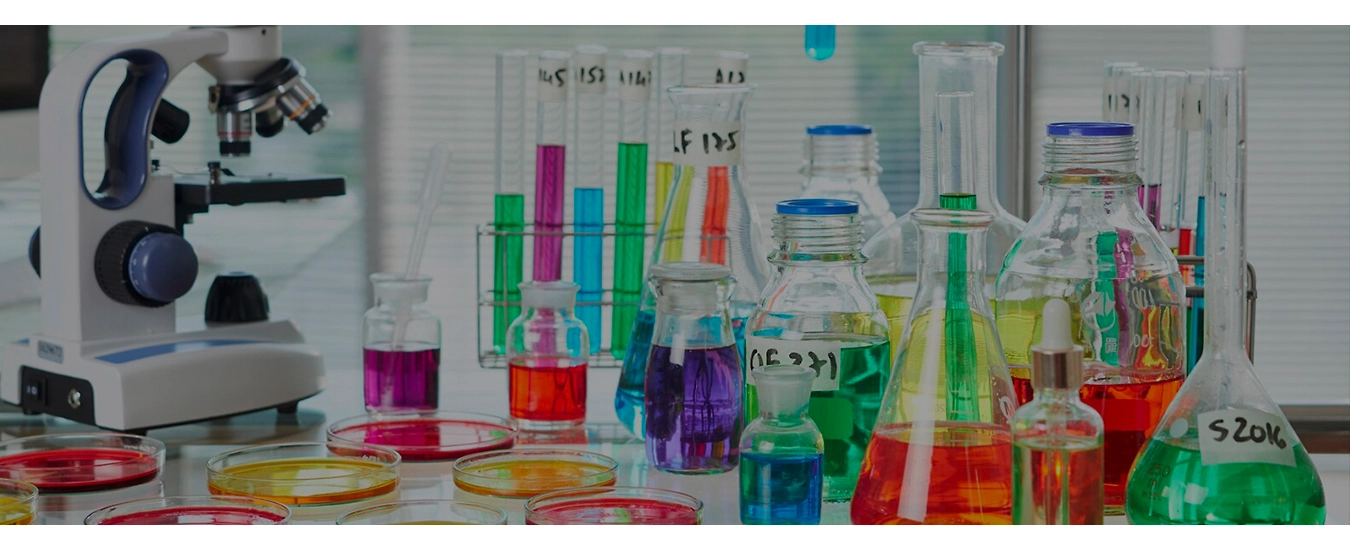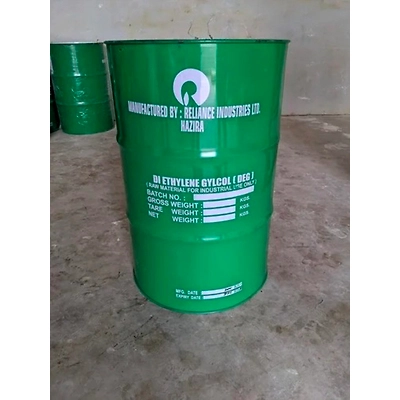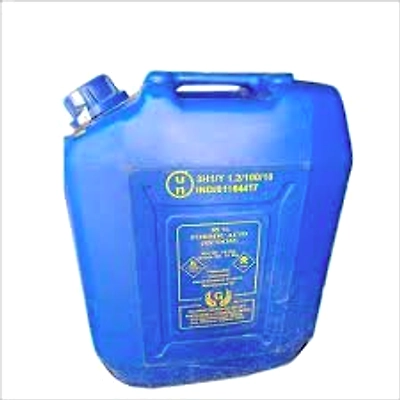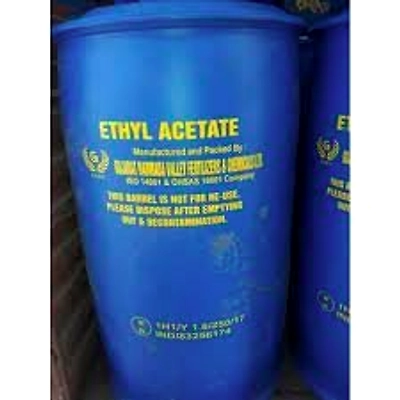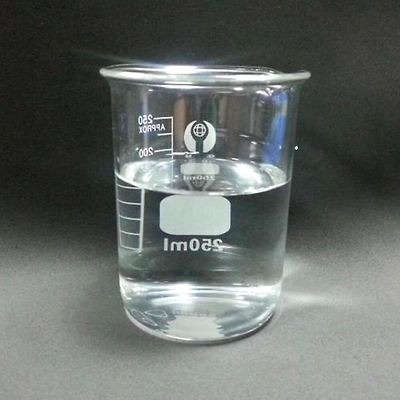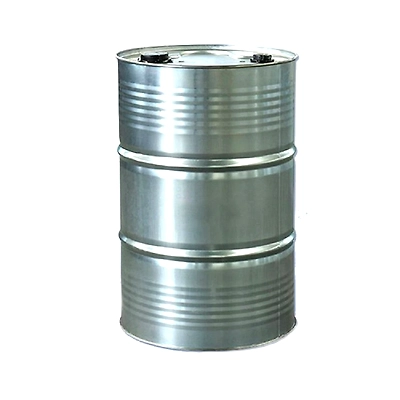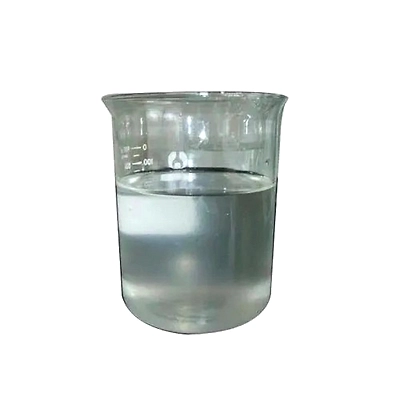Diethylene Glycol (Deg)
Diethylene Glycol (DEG) is a colorless, odorless, and hygroscopic liquid. It is a chemical compound used in various industrial applications, including as a solvent, coolant, and in the production of resins and plastics.
IUPAC Name:2,2'-Oxydiethanol
Common Name:
DEG
Diglycol
Appearance:Diethylene Glycol is a clear, colorless, and hygroscopic liquid with a slightly sweet taste.
Chemical Formula:C4H10O3
Molecular Weight:106.12 g/mol.
Applications:
Industrial Solvent: DEG is commonly used as a solvent in various industrial processes, such as in the manufacture of paints, varnishes, and chemical reactions.
Coolant and Antifreeze: It is used as a coolant and antifreeze in radiators of vehicles and industrial equipment to prevent freezing and overheating.
Plastics and Resins: Diethylene Glycol is used in the production of plastics, resins, and polymers, particularly in the manufacturing of polyester resins and certain plastics.
Textile Industry: It is employed as a softening agent and humectant in the textile industry.
Pharmaceuticals: In the pharmaceutical industry, DEG can be found in certain formulations and topical medications.
Gas Dehydration: DEG is used in natural gas processing to remove water from natural gas streams.
Hydraulic Fluids: It may be used as a hydraulic fluid or heat transfer fluid in some industrial applications.
Packing Size: 230 Kg
Packing Type: Barrel
Glycerin
Glycerine, also known as glycerin or glycerol, is a colorless, odorless, and sweet-tasting liquid. It is a versatile and widely used compound with numerous applications in various industries, primarily due to its unique properties as a humectant and solvent.
IUPAC Name:Propane-1,2,3-triol
Common Name:
Glycerin
Glycerol
Appearance:Glycerine typically appears as a clear, colorless, and viscous liquid.
Chemical Formula:The chemical formula for Glycerine is C3H8O3.
Molecular Weight:The molecular weight of Glycerine is approximately 92.09 g/mol.
Applications:
Pharmaceuticals: Glycerine is used in pharmaceutical formulations as an excipient and as a solvent for various medications.
Cosmetics and Personal Care: It is a common ingredient in cosmetics, skin care products, and personal care items due to its moisturizing and hydrating properties.
Food Industry: Glycerine is used in the food industry as a sweetener, humectant, and as an ingredient in various products, including confectionery, baked goods, and beverages.
Tobacco Industry: In the tobacco industry, Glycerine is added to tobacco products to prevent drying and to enhance flavor.
Chemical Manufacturing: Glycerine is used in the synthesis of various chemicals and as a solvent in chemical processes.
Automotive and Antifreeze: It is employed in the production of antifreeze and brake fluid for vehicles.
Agriculture: Glycerine is used in agricultural formulations and crop protection products.
Packing Size: 250 Kg
Packing Type: HDPE Drum
Formic Acid
Formic Acid, also known as methanoic acid, is a colorless and highly pungent organic acid. It is the simplest carboxylic acid, with a wide range of industrial and laboratory applications.
IUPAC Name:Methanoic Acid
Common Name:
Formic Acid
Hydrogen Carboxylic Acid
Ameisensure (in German)
Appearance:Formic Acid typically appears as a colorless liquid with a sharp, pungent odor.
Chemical Formula:The chemical formula for Formic Acid is HCOOH.
Molecular Weight:The molecular weight of Formic Acid is approximately 46.03 g/mol.
Applications:
Textile and Leather Industry: Formic Acid is used in textile dyeing and finishing processes, including color fixation and wool degreasing.
Agriculture: It is employed in agriculture as a preservative for livestock feed and silage, inhibiting the growth of spoilage microorganisms.
Chemical Manufacturing: Formic Acid is used in the synthesis of various chemicals, including pesticides, pharmaceuticals, and perfumes.
Rubber Industry: It is used in the production of rubber to enhance vulcanization and improve rubber properties.
Laboratory and Research: Formic Acid is used in laboratories for various analytical and research applications, including pH adjustment, extraction, and chemical reactions.
Oil and Gas Industry: It is used in the drilling fluid formulation for oil and gas exploration, where it helps maintain wellbore stability.
Biological and Medical Research: Formic Acid is used in some biological and medical research procedures, such as histology and tissue fixation.
Desalination: It is used in desalination processes to prevent the formation of scales and deposits in equipment.
Preservative: Formic Acid is used as a preservative in some cleaning products and personal care items.
Packing Size: 30 Kg
Packing Type: Carboy
Ethyl Acetate
Ethyl acetate is a chemical compound with the molecular formula CH3COOC2H5. It is commonly known as ethyl ethanoate and is a clear, colorless liquid with a pleasant fruity or floral odor. Ethyl acetate is classified as an ester, which is a type of organic compound formed by the reaction between an alcohol and an organic acid.
IUPAC Name:Ethyl Acetate
Common Name:
Acetic Ester
Ethyl Ethanoate
Ethyl Acetic Ester
Appearance:Ethyl Acetate is a colorless liquid with a sweet, fruity odor, reminiscent of pears or apples.
Chemical Formula:The chemical formula for Ethyl Acetate is CH3COOC2H5.
Molecular Weight:The molecular weight of Ethyl Acetate is approximately 88.11 g/mol.
Applications:
Solvent: Ethyl Acetate is widely used as a solvent in various applications, including paints, coatings, adhesives, inks, varnishes, and nail polish removers.
Chemical Manufacturing: It is utilized as a reactant or solvent in the production of various chemicals, including esters, flavoring compounds, and pharmaceuticals.
Food Industry: Ethyl Acetate is used in the food industry to impart fruity flavors and aromas to various food products, such as confectionery, baked goods, and beverages.
Laboratory and Research: Laboratories often use Ethyl Acetate as a solvent for chemical reactions and extractions. It is also used in chromatography.
Pharmaceuticals: It finds applications in pharmaceutical formulations and processes, including the preparation of oral suspensions and the synthesis of active pharmaceutical ingredients.
Perfumes and Fragrances: Ethyl Acetate is a common ingredient in perfumes and fragrances due to its pleasant fruity scent.
Nail Care: It is a key component in nail polish removers for its ability to dissolve nail polish quickly.
Adhesives and Sealants: Ethyl Acetate is used in the formulation of adhesives and sealants, providing effective bonding properties.
Packing Size: 210 Kg Packing Type: HDPE Barrel
Light Liquid Paraffin
Light Liquid Paraffin, also known as white mineral oil, liquid petrolatum, or liquid paraffin oil, is a colorless, odorless, and tasteless mineral oil. It is a highly refined and purified petroleum-based liquid known for its various applications.
Common Name:
White Mineral Oil
Liquid Petrolatum
Paraffinum Liquidum (in Latin)
Appearance:Light Liquid Paraffin typically appears as a colorless, odorless, and tasteless liquid. It is transparent and lacks any color, odor, or flavor.
Applications:
Pharmaceuticals: Light Liquid Paraffin is used in the pharmaceutical industry as a lubricant in tablets and capsules and as a laxative in oral medications.
Cosmetics and Personal Care: It is a common ingredient in cosmetics, skincare products, and personal care items, such as lotions and creams, for its moisturizing and skin-softening properties.
Industrial Applications: Light Liquid Paraffin is used in various industrial processes, including as a coolant in machining, as a hydraulic fluid, and as an insulating oil in electrical transformers.
Textile Industry: It may be used in the textile industry for sizing, lubrication, and as an auxiliary agent in dyeing.
Veterinary and Animal Care: Light Liquid Paraffin is used in veterinary and animal care products, including as a laxative for pets and livestock.
Cleansing and Cleaning Products: It can be found in cleansing and cleaning products for its ability to dissolve and remove dirt and residues.
Agriculture: In agriculture, it is used in crop protection formulations and as a surfactant in agrochemicals.
Panking Size: 209 Liter
Packing Type: HDPE Drum
Propylene Glycol
Propylene Glycol is a synthetic organic compound that belongs to the class of diols or glycols. It is a colorless, odorless, and tasteless liquid with a slightly sweet taste.
IUPAC Name: Propane-1,2-diol
Appearance:Clear, colorless, and odorless liquid with a slightly sweet taste.
Chemical Formula: C3H8O2
Molecular Weight: 76.09 g/mol
Applications:
Food and Beverage Industry: Propylene Glycol is used as a food additive and humectant in various food products. It helps maintain moisture in certain foods and acts as a carrier for flavors and colors.
Pharmaceuticals: It is utilized in the pharmaceutical industry as a carrier and solvent in the formulation of oral and injectable drugs, as well as in topical preparations like creams and ointments.
Cosmetics and Personal Care Products: Propylene Glycol is an ingredient in a wide range of cosmetics, skincare products, and personal care items, where it functions as a humectant, solvent, and vehicle for various active ingredients.
Antifreeze and Coolants: It is used in antifreeze and engine coolant formulations for automotive and industrial applications due to its ability to lower the freezing point of water and prevent overheating.
Tobacco Industry: Propylene Glycol is employed in the production of e-liquids and as a carrier for flavors in electronic cigarettes and vaping products. Packing Size: 215 kg Packing Type: Barrel Packing
Acrylic Acid
Acrylic Acid is a versatile and essential organic compound with a wide range of industrial applications. It is a colorless, pungent-smelling liquid that plays a crucial role in the production of various chemicals and polymers.
IUPAC Name:Prop-2-enoic Acid
Other Name or Common Name:
Acrylic Acid
Ethylenecarboxylic Acid
Vinylformic Acid
Appearance:Acrylic Acid typically appears as a colorless to pale yellow liquid with a strong, acrid odor.
Chemical Formula:CH2=CHCOOH.
Molecular Weight:72.06 g/mol.
Applications:
Polymer Production: Acrylic Acid is a primary building block for the production of various acrylic polymers, including acrylic resins and superabsorbent polymers (SAPs). These polymers are used in a variety of products, such as paints, adhesives, and diapers.
Adhesives and Sealants: It is used in the formulation of adhesives and sealants, providing strong bonding properties and excellent adhesion to various substrates.
Coatings and Paints: Acrylic Acid is a key component in the production of acrylic coatings and paints, offering durability, weather resistance, and excellent color retention.
Water Treatment: It is used in water treatment processes to improve the efficiency of coagulation and flocculation, aiding in the removal of impurities and pollutants.
Textiles and Superabsorbent Products: In the textile industry, it is used in the production of water-absorbent materials, such as diapers and hygiene products.
Oil and Gas Industry: Acrylic Acid is used in drilling fluids as a rheology modifier and stabilizer, helping to maintain wellbore stability during drilling operations.
Pharmaceuticals: It is used in the synthesis of pharmaceutical intermediates and active ingredients.
Agriculture: In agriculture, it is employed in soil conditioners and agricultural chemicals.
Packing Size: 200 KG
Packing type: HDPE Barrel

